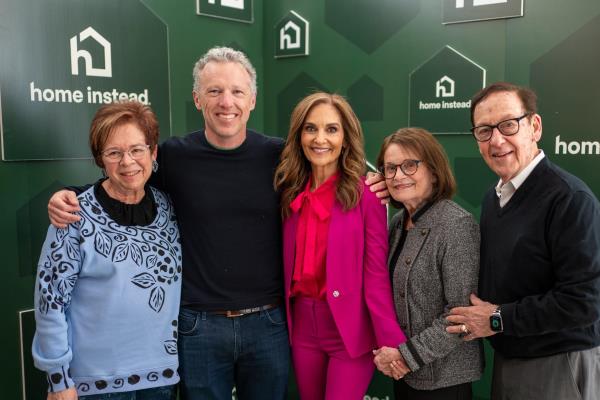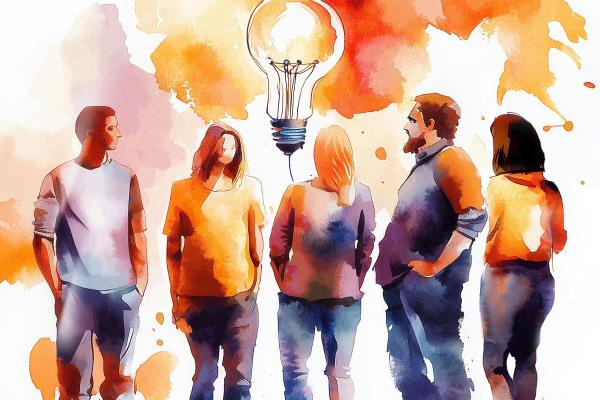When my co-founders and I started to share our ideas on where and how we were going to tackle our next venture, reactions ranged from, “Oh wow, let me tell you my personal story,” to “Seniors and tech sound super hard.” That told us a few important things: taking care of aging loved ones was ubiquitous but hidden from mainstream conversation. And there was ripe opportunity to flip the perception of technology in the older adult population.
We refused to believe that the fastest growing demographic in the country—and parts of the world—had to be left behind because of lack of effort or investment into the wonders and benefits that technology has imprinted on so many other groups and industries. We were determined to reframe the conversation.
A profession in need of technology
When Honor’s founding team first started learning about the home care industry, we spoke with caregivers across different geographies. The first thing that became abundantly clear was that they really value and love their work despite that work being difficult. Which is saying a lot. Because, as my co-founder, Seth Sternberg, shared in a recent article, we also consistently heard that they didn’t feel respected. They struggled to maintain consistent hours week to week. And they rarely received recognition for a job well done or saw opportunities for upward movement. Over and over we heard, “I want respect. I want enough hours to earn a consistent living. I want to grow in my job.”
The shorthand for all of that is that they wanted to be treated like the highly trained, hard-working, in-demand professionals that they are. But how could we make that happen for them?
We come from technology backgrounds, and our past experiences have taught us that broadly speaking, tech helps accelerate the iterative learning process, which means businesses can adapt and innovate faster. Unlocking the best way to apply that learning process is how an industry can really win with technology. For some industries, that might mean massive automation or manual task elimination. In home care though, the last thing you want to do is replace the human experience. In fact you want to do the opposite: enhance it. So at Honor, we took a very different approach to integrating technology into our business. We focused a lot of it on a foundational hypothesis: uplifting caregivers—we call ours Care Professionals, or Care Pros for short—creates better outcomes for everyone in the care cycle: Care Pros, clients, and families.
Our theory was, if you can’t take care of yourself, how can you take care of someone else? If you’re always looking for work, worried about wages from week to week, and unsure about job stability, all of that has to impact your ability to provide good care.
What if, instead, you’re treated like a professional, working consistently, and feeling confident about your weekly pay and job performance? We posited that all of that would put you in a significantly better position to provide better care for your client. In turn, your client is happier with you. And the client’s family is happier with Honor. So Honor is better able to provide better care to our Care Pros. It’s a rich and adaptive positive learning feedback loop.
The theory was great, but we needed to put it into practice. We started with three major areas of focus.
Challenge #1
Can we build tools that empower Care Pros?
Tech solution
We knew we had to start by creating a strong relationship with our Care Pros. So we developed a highly tailored Care Pro app that interacts with Care Pros like professionals and is as easy to use as a consumer app, enabling equitable, consistent communication (i.e. no more randomly allocated shifts). Our Care Pro app represents a long term, deep commitment to our Care Pros as employees. We put millions of dollars in development time into this system because we value our Care Pros as the cornerstone of our business. And this investment pays off every day—94% of Honor Care Pros interviewed say they have the tools and resources they need to do their job well. We think this helps explain why Honor has some of the highest Care Pro retention rates in the industry.
Challenge #2
How do we create a better employment experience for Care Pros?
Tech solution
Employees tend to feel better about their employment experience when they feel a sense of stability. One of the goals of the Honor Care Platform is to create stability in both job matching and job availability. Durable Care Pro/Client relationships—based on Client needs, Care Pro skills, and the personal preferences of both—can lead to longer, more stable employment, better performance, and better job satisfaction. And the scale of the Care Platform means that there are simply more shifts and jobs available for Care Pros that need them. By continually learning, investing in, and improving job predictability and stability, the Care Platform creates more consistent care for our Clients, overall better experiences for our Care Pros, and fewer scheduling challenges for agencies. Everybody wins.
Challenge #3
What’s the best way to communicate with Care Pros?
Tech Solution
How can you improve if you don’t know how you’re measured, how to get better, or what’s considered success? Standardized and consistent feedback delivered frequently and fairly creates learning loops that can help professionals grow in their careers. Feedback lets them know what they need to work on, what they should keep doing, and what to change. Great Care Pros get rewarded. Everyone knows where they need to improve. And if a Care Pro continues to perform poorly and deliver low quality care, they get fired just like any worker in other professional industries.
It’s exciting to see our Product & Engineering team push out solutions like these on a monthly, weekly, sometimes daily basis. And even more exciting to see the outcomes of their innovations, like consistently high Care Pro job satisfaction scores, and positive Client feedback for 94% of our Care Pros, on average.
"For too long, people have viewed paid caregiving as unskilled work."
There are still tons of ways technology can further professionalize and uplift the Care Pro workforce. For instance, we could take data we’ve collected and apply it to new modes of career education, thereby creating more highly trained Care Pros. We could create industry-wide certifications for Care Pros, based on skills and training, and offer that skill-building and training in our Care Pro App. We could make our Care Pro App available to Care Pros across the country and the world, uplifting the care profession globally. These are huge initiatives, but they all can happen with the help of the right technology.
For too long, people have viewed paid caregiving as unskilled work. In reality, it’s really difficult work that requires a lot of skill and training, not to mention compassion, resilience, communication skills, and the ability to problem solve and make tough decisions on the fly. I want the world to see caregiving as work that’s professional and worthy of time and capital investment. Bringing technology to the home care industry gives us the ability to make caregiving a rewarding, long term career in which Care Pros can grow, develop, and be recognized for their skills and contributions. This isn’t a nice-to-have. It’s a must-have for the world if it’s going to keep up with the growing aging population.
If you’re interested in joining or learning more about Honor’s engineering team, visit this page.




